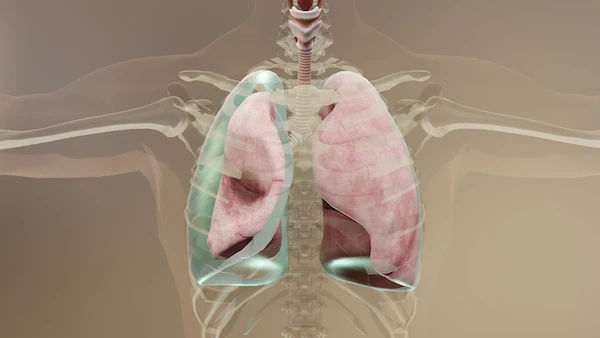- male
- 50 Years
- 31/03/2021
What are the 4 types of hypoxia?
Answered by 1 Apollo Doctors
The four types are as follows: (1) the hypoxemic type, in which the oxygen pressure in the blood going to the tissues is too low to saturate the hemoglobin. (2) the anemic type, in which the amount of functional hemoglobin is too small, and hence the capacity of the blood to carry oxygen is too low. (3) the stagnant type, in which the blood is or may be normal but the flow of blood to the tissues is reduced or unevenly distributed. (4) the histotoxic type, in which the tissue cells are poisoned and are therefore unable to make proper use of oxygen.
Dr. Anshul Suggests...
Consult a Pulmonology Respiratory Medicine Specialist
Answered 04/07/2025
0
0

More Pulmonology/ Respiratory Medicine Health Queries
View allI'm noticing that I've been getting this really sticky, gel-like cough from my mouth lately, and I'm kinda worried about what it could mean. Do you think it might have something to do with my lungs? Also, which type of doctor should I see about this?
This can indicate excessive mucus production in your respiratory tract. This problem may be related to your lungs. You can consult a Pulmonologist for further evaluation and management. I recommend using an expectorant like Mucinex (guaifenesin) to help thin and loosen the mucus. Be sure to drink plenty of water to help with mucus clearance.
Answered by 1 Apollo Doctors
My dad's 56, and he's been getting shortness of breath when he walks even short distances, climbs stairs, or does small tasks. Sometimes just coughing can make it hard for him to breathe. Can you suggest any medicines or foods that might help? I'm really concerned.
do spirometry and proceed
Answered by 1 Apollo Doctors
I'm curious about my breathing patterns. When I'm just relaxing, like sitting or lying down, I find myself doing a bit of deep breathing. Does that sound normal to you? But then, when I start walking, my breaths get shallower and quicker. So, my inhale and exhale times become pretty short. Is that something to be worried about or is it completely normal? I'm really unsure about this and would appreciate your guidance.
normal
Answered by 1 Apollo Doctors
Disclaimer: Answers on Apollo 247 are not intended to replace your doctor advice. Always seek help of a professional doctor in case of an medical emergency or ailment.





